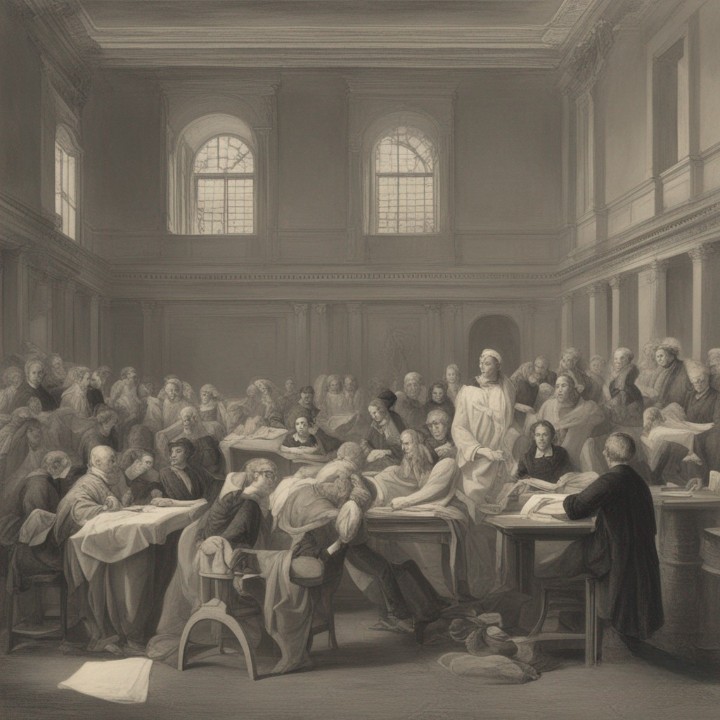|
Introduction
The practice of medicine is a complex interplay of science, technology, and human compassion. While the scientific aspect of medicine is vital for diagnosing and treating diseases, it's the humanities that lend depth and nuance to healthcare. The integration of humanities in medicine is not merely an academic pursuit but a profound exploration of human experiences, ethics, and values. In this essay, we will delve into the significance of humanities in medicine, highlighting how literature, art, ethics, and communication skills enrich the healthcare landscape.
I. Literature and Empathy
- The Healing Power of Stories: Literature offers narratives that capture the essence of human experiences, including suffering, hope, resilience, and vulnerability. Medical professionals who engage with literature gain insight into the emotional complexities of patients' lives. This empathy fosters trust and communication between healthcare providers and patients, ultimately leading to better outcomes.
- Narrative Medicine: Narrative medicine is an interdisciplinary field that encourages healthcare practitioners to listen to patients' stories attentively. By analyzing these narratives, physicians can gain a deeper understanding of the patient's emotional and psychological state, leading to more holistic and patient-centered care.
II. Art and Observation
- The Art of Observation: The practice of medicine demands keen observation skills. Art education, particularly in fields like medical illustration, can enhance a physician's ability to observe, detail, and record clinical findings accurately. This intersection of art and medicine is invaluable in disciplines like surgery and radiology.
- Art Therapy: Art therapy is an established form of treatment for patients dealing with mental health issues, trauma, or chronic illnesses. By engaging in creative processes, individuals can express their emotions and experiences, providing valuable insights to healthcare providers.
III. Ethics and Moral Dilemmas
- Bioethics: The field of bioethics explores the ethical challenges that emerge in healthcare, from end-of-life decisions to the use of emerging technologies like gene editing. Medical professionals well-versed in ethics can navigate these complexities while upholding patient autonomy and dignity.
- The Doctor-Patient Relationship: A strong ethical foundation is crucial in maintaining trust within the doctor-patient relationship. Understanding the ethical principles of beneficence, non-maleficence, justice, and autonomy helps physicians make morally sound decisions in their practice.
IV. Communication Skills and Empathetic Care
- The Importance of Effective Communication: Medicine isn't just about diagnosing and treating; it's about connecting with patients on a human level. Effective communication skills are essential for conveying complex medical information in an understandable and compassionate manner.
- Empathy in Practice: Empathetic care goes beyond the technical aspects of medicine. It involves active listening, showing compassion, and acknowledging patients' emotions and concerns. Studies have shown that patients who feel heard and understood by their healthcare providers experience better health outcomes.
V. Cultural Competency and Diversity
- Cultural Competency: In an increasingly diverse world, healthcare providers must be culturally competent. Understanding and respecting different cultural beliefs, practices, and traditions is essential for providing care that is sensitive and relevant to each patient's background.
- Reducing Health Disparities: Addressing health disparities often involves an understanding of the social determinants of health, which is a topic closely related to humanities. Physicians who are aware of these factors can advocate for policies and practices that promote health equity.
VI. Palliative Care and End-of-Life Discussions
- Palliative Care: Humanities play a significant role in palliative care, which focuses on enhancing the quality of life for patients with life-limiting illnesses. Art, music, literature, and compassionate communication are integral components of providing comfort and solace to patients in their final moments.
- End-of-Life Discussions: These conversations are some of the most delicate in medicine. A humanities-based approach emphasizes the importance of empathy, active listening, and ethical considerations when discussing a patient's wishes and options for end-of-life care.
VII. Preventing Burnout and Fostering Resilience
- The Human Side of Healthcare Providers: Healthcare professionals, too, face emotional and psychological challenges. Engaging with humanities can provide an outlet for self-expression, self-care, and reflection, helping to prevent burnout and promote resilience.
Incorporating humanities into medical education and practice is not a mere luxury but a necessity. It elevates the practice of medicine from a purely technical endeavor to a deeply human one. By emphasizing empathy, ethics, communication, and cultural competency, healthcare providers can better understand and serve their patients. Moreover, integrating art, literature, and narratives into medicine enriches the healthcare experience for both patients and providers. It reminds us that while science may diagnose and treat, it is the humanities that truly heal. As medicine advances, it's essential to remember that at its core, it's about caring for the human experience. The Program for Humanities in Medicine
|
